I stopped for a short time today at the Fox River Sanctuary in Waukesha Wisconsin to do some birding. I watched a pair of Downy Woodpeckers excavating a nest hole in a dead tree. First I observed the male working at the nest hole and then the female took over for a while. They really put some time into doing this between breaks. Yellow-rumped Warblers were in large numbers late morning, but then that slowed early afternoon. A couple of Palm Warblers made a brief appearance and a handful of Cedar Waxwings hung around feeding on a few berries that made it through the winter. Images were taken on April 23, 2014.
Downy Woodpecker
Binomial name: Picoides pubescens
Category: Woodpeckers and Allies
Size: 6.75” long, 12” wing span
Weight: 0.95 oz.
Habitat: Breeds in open woodlands, parks, backyards, vacant lots, orchards mostly in deciduous trees. Their breeding range is from Alaska east through central Canada and all of the US except the Southwest.
Diet: Insects are their main diet, but they also eat berries and seeds. They are a frequent visitor to backyard bird feeders for suet and black sunflower seeds. The Downy has also been seen drinking from hummingbird feeders.
Nesting: Both adults share the work of excavating a nest hole in a dead tree or limb. It takes the pair 1-3 weeks and the cavity is 6”-12” deep and is usually 1.5” or less across at the bottom. The bottom is lined with only wood chips where usually 3-8 eggs are laid.
Cool Facts: The Downy Woodpecker is typically a permanent resident to an area. They look very much like a Hairy Woodpecker but smaller and their bill is short and stubby where the Hairy bill is long. Adult males have a red patch on the back of their head. Woodpeckers do not sing, they just drum on wood to get the same effect. People think their drumming has to do with food, but they are actually very quiet eaters. The Downy is the most common woodpecker in backyards in North America. These woodpeckers and can peck up to 1200 times per minute while excavating a tree nest hole.

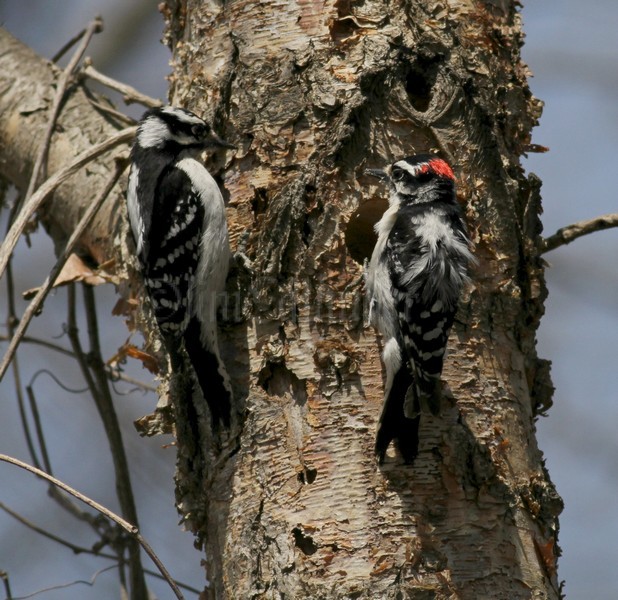
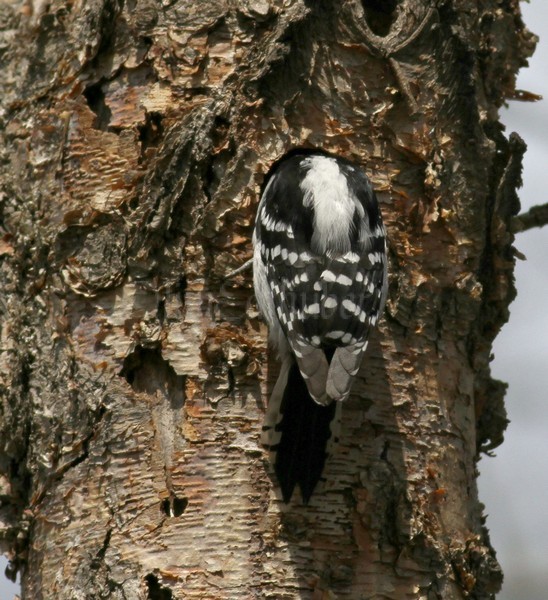
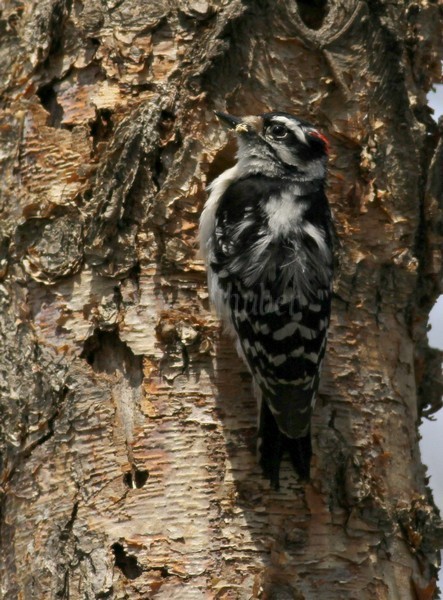
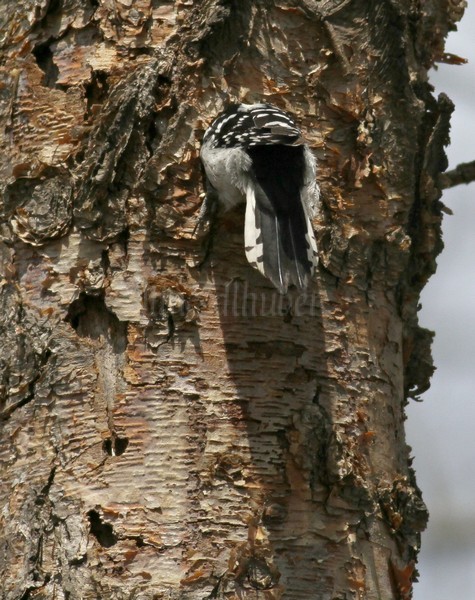
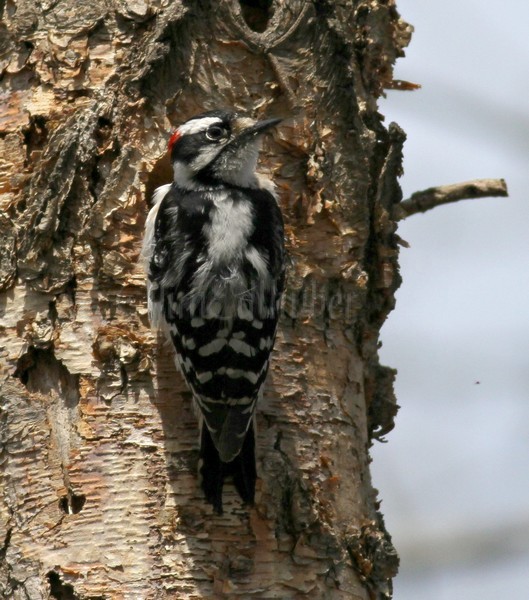
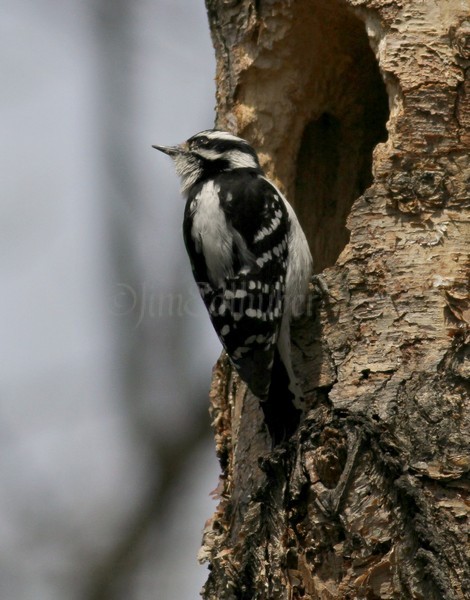
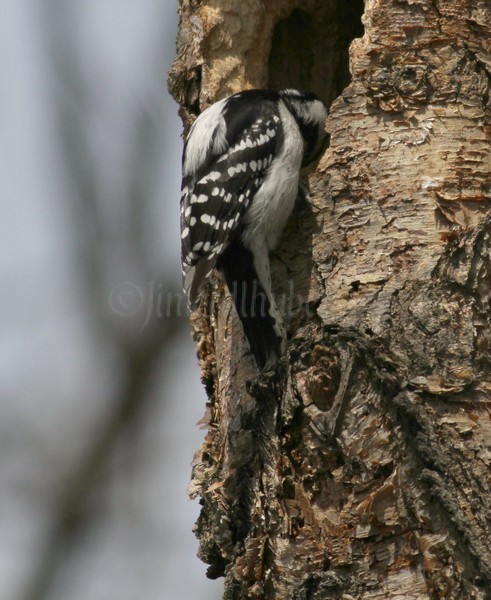
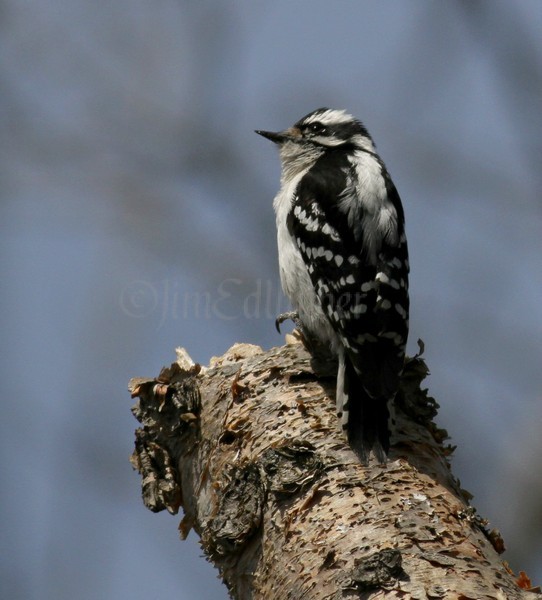
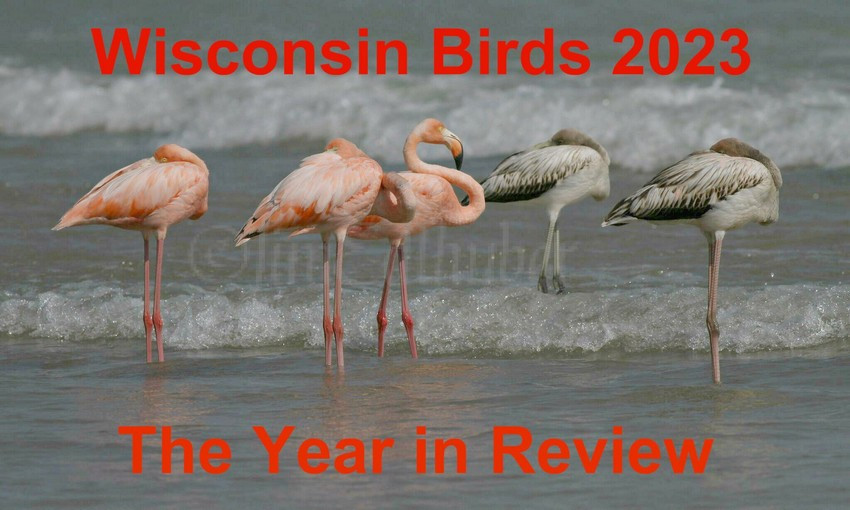
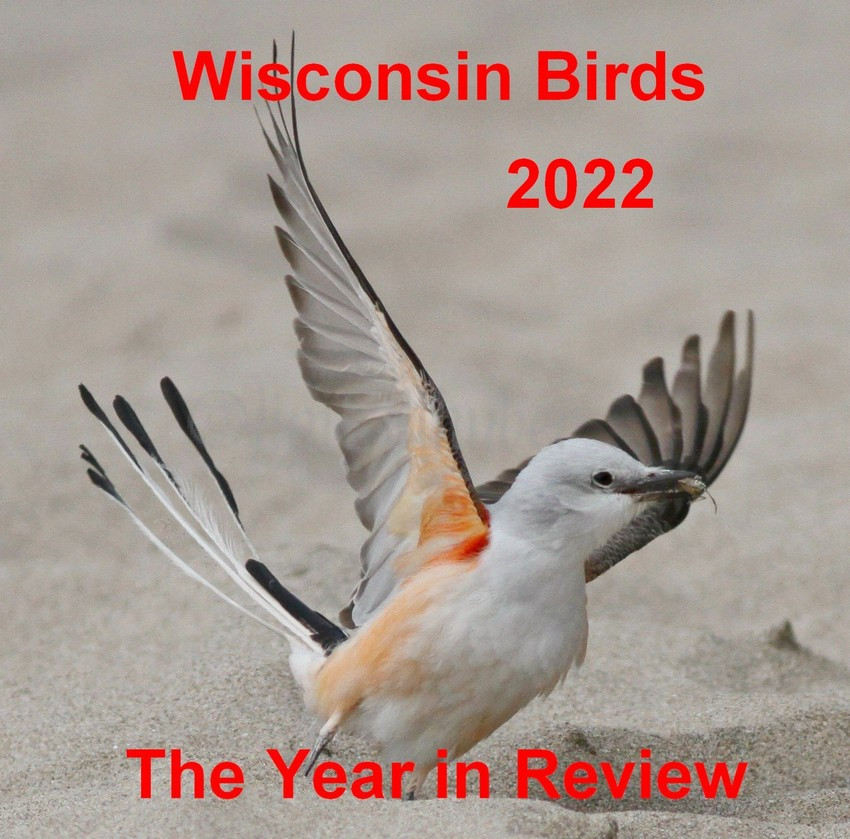
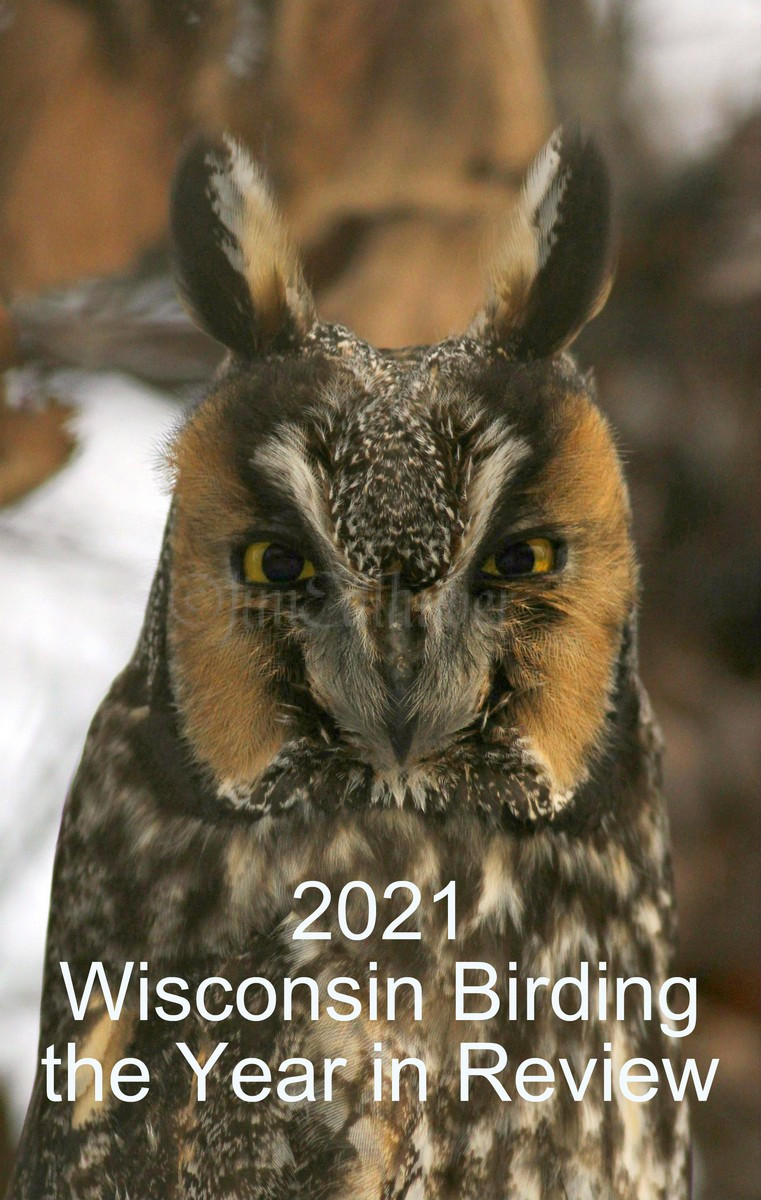
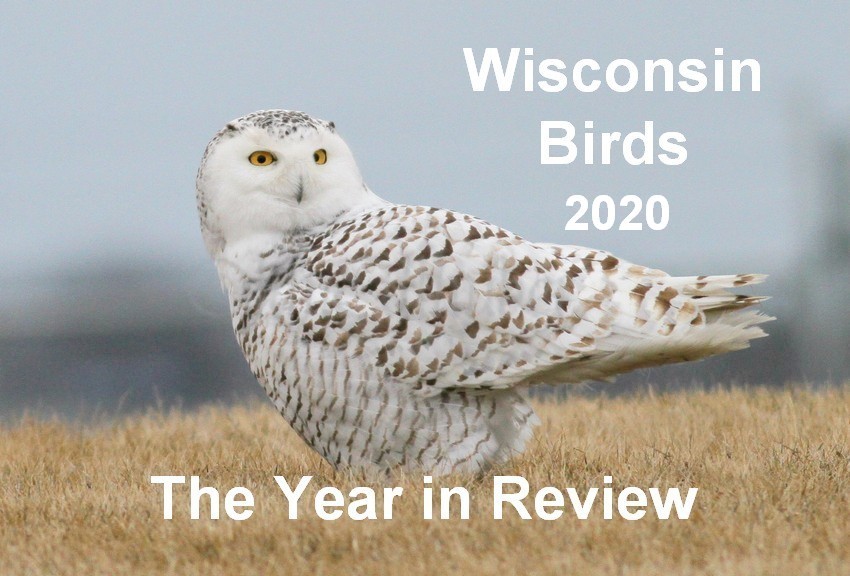
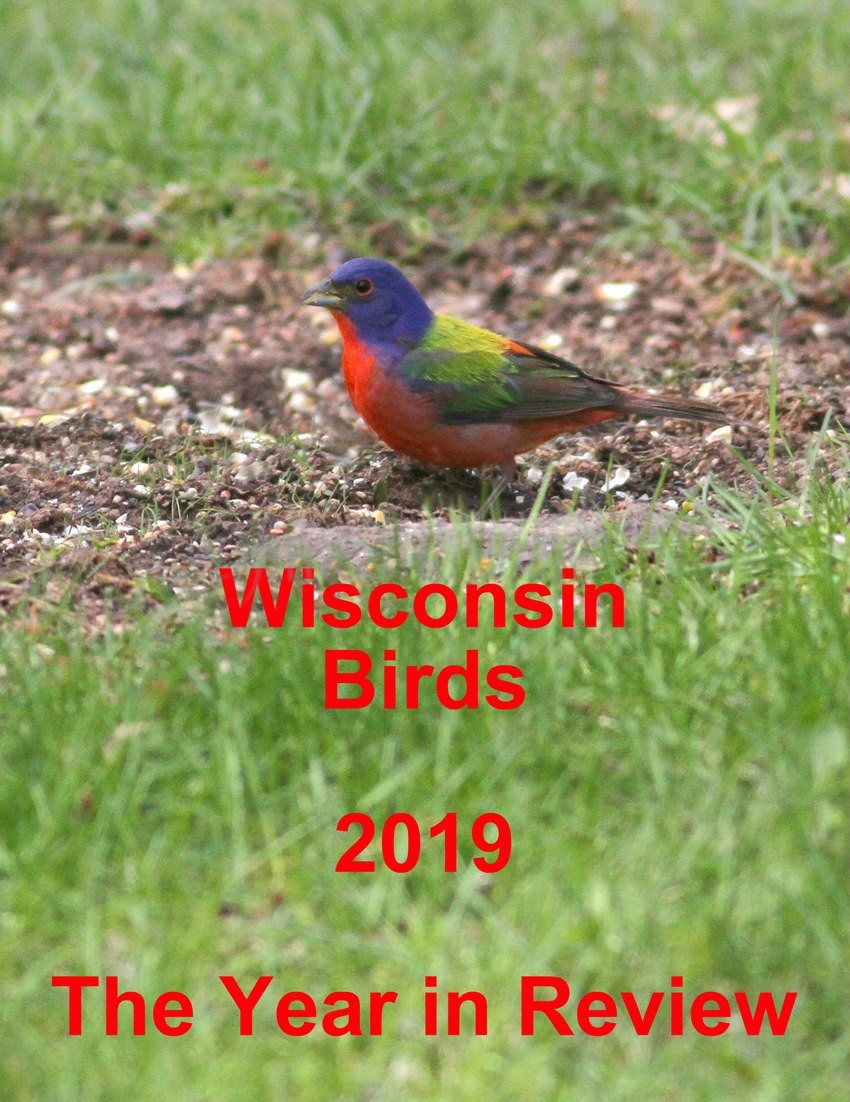
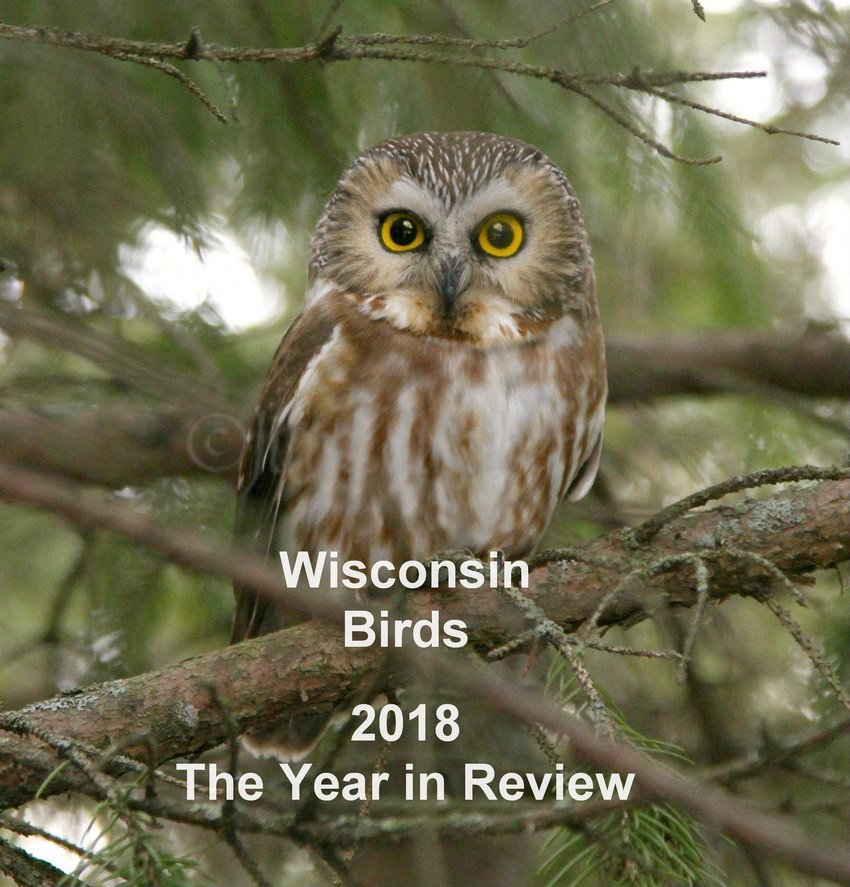
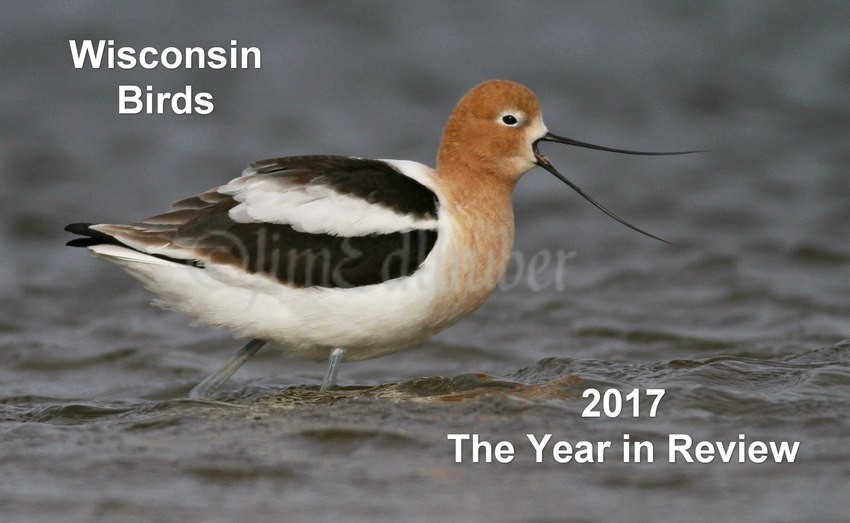
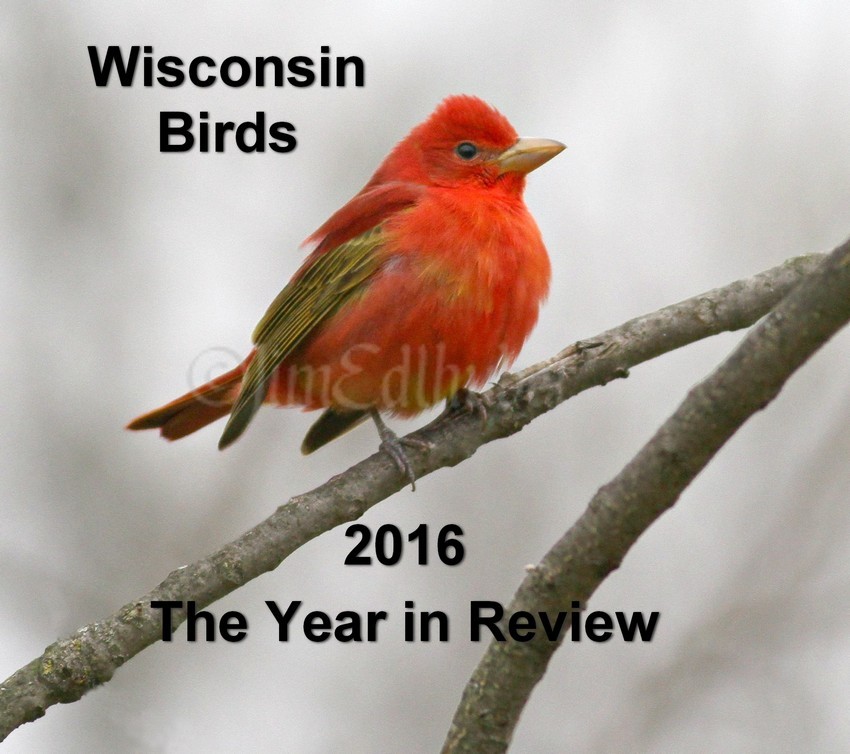
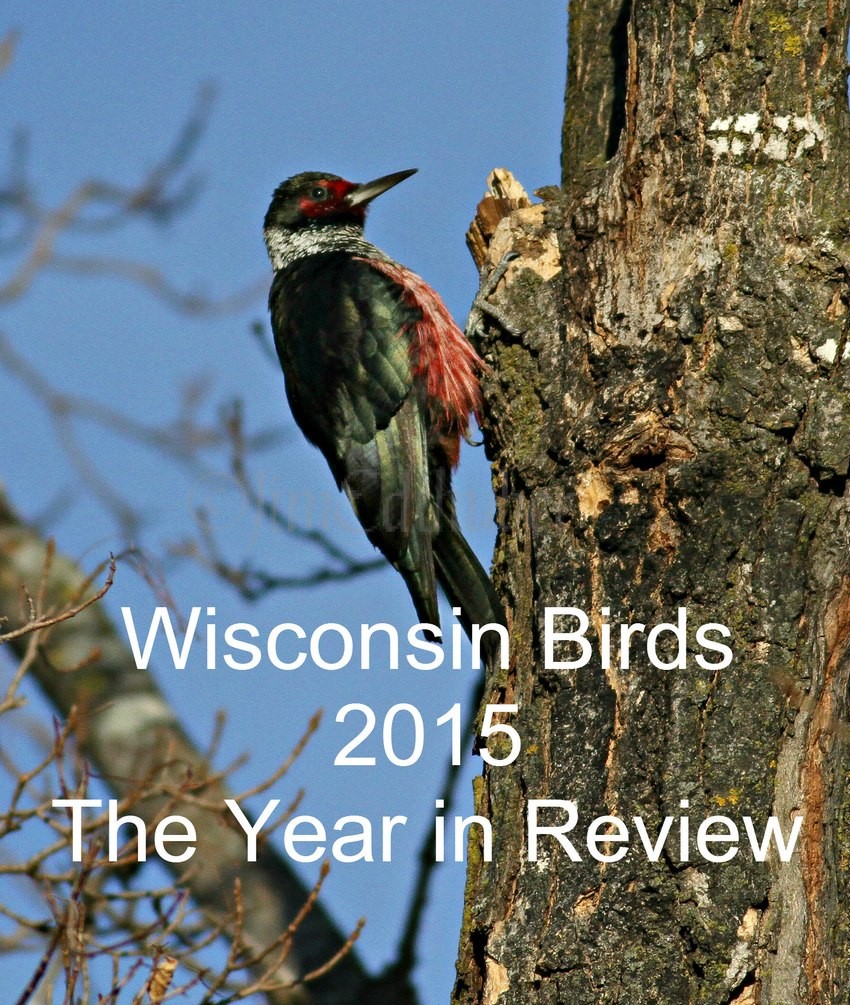
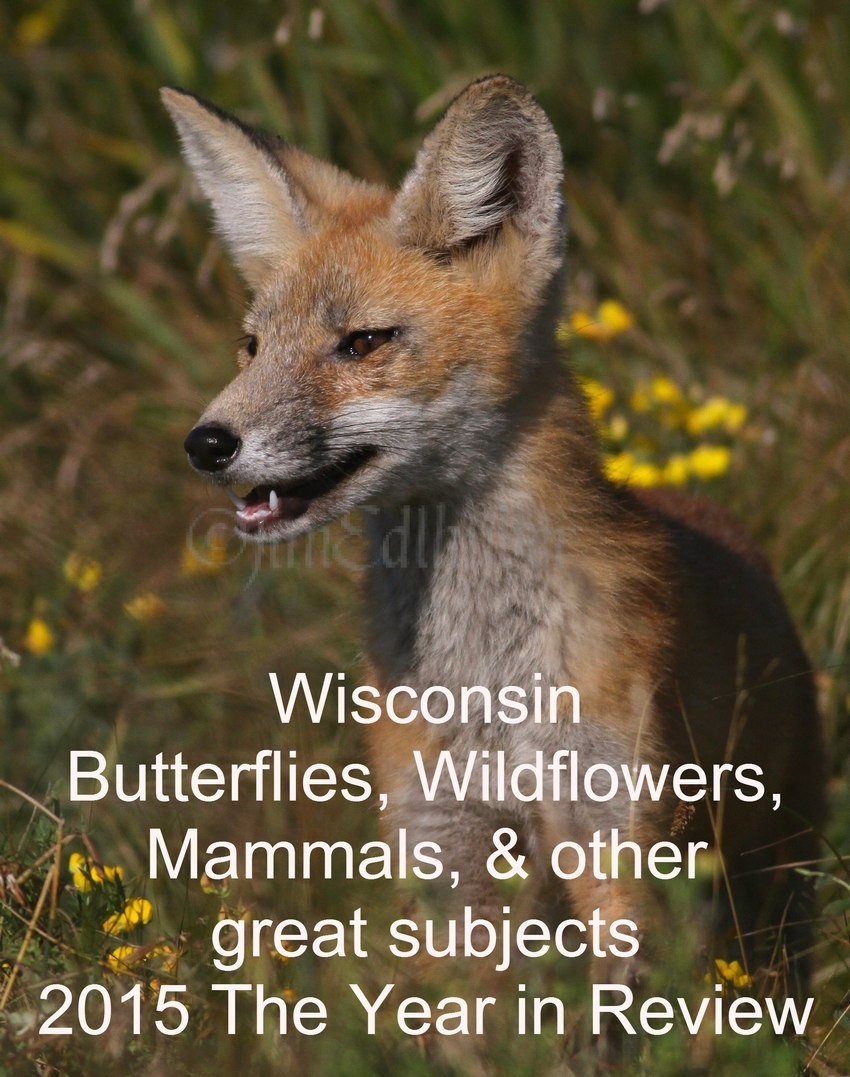
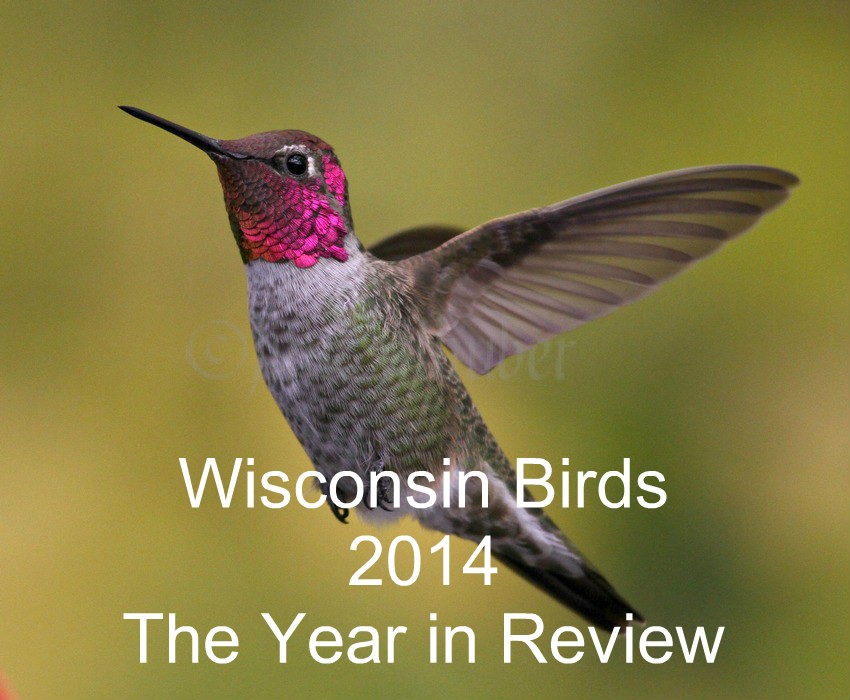
Jim – I was hoping you’d return to the woods where carpentry is underway. We see the male downy working feverishly to carve out a comfy sanctuary for eggs and nestlings. Meanwhile, the little female has her sites set on something much grander in scale. He would have to work ’round the clock to complete an opening that size – and in time for egg-laying. Great photos like these tell a story without words!